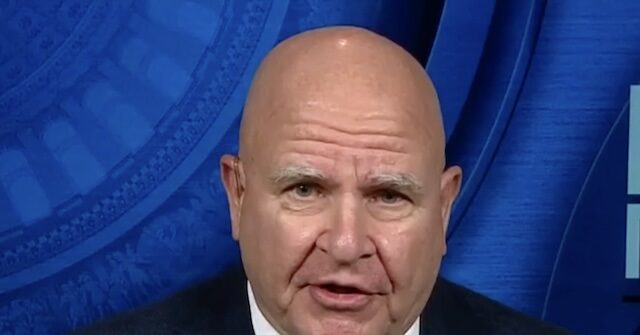Former National Security Advisor H.R. McMaster expressed strong concerns about certain factions within the Republican Party that appear to support or echo the sentiments of Russian President Vladimir Putin. During his appearance on CBS’s “Face the Nation,” McMaster emphasized the need for Republicans to reassess their affinity for Putin, criticizing what he described as a “strange affection” for the Russian leader. He challenged the notion that Putin could be seen as a defender of Western civilization, suggesting that such views are misleading and dangerous. This perplexity aligns with the broader concern that some political figures may inadvertently legitimize Putin’s narrative, which runs counter to the interests and values of the United States and its allies.
McMaster articulated a critical perspective on Putin’s true ambitions, highlighting his intent to restore Russia’s former empire and power at the expense of other nations. He underscored that Putin’s aspirations extend far beyond mere reactions to U.S. actions, hinting at a larger geopolitical strategy aimed at destabilization and confrontation. Through his remarks, McMaster implored Republicans to recognize the seriousness of Putin’s objectives, asserting that a lack of understanding or misinterpreting his intentions could have dire consequences for U.S. national security. His assertion that strength is the antidote to Putin’s aggression underscores the broader military and diplomatic stance that the United States must adopt in dealing with authoritarian regimes.
In the conversation, McMaster also touched upon the perplexing fascination some figures, including former President Donald Trump, have with Putin. He admitted to being baffled by this admiration, suggesting that it misrepresents the real nature of Putin as a global actor who seeks to undermine U.S. influence. As a former member of Trump’s administration, McMaster’s insights provide a unique perspective on how these perceptions can shape national security strategy. The concern is that such admiration can lead to policies that unwittingly enable authoritarian behavior rather than counteract it, potentially compromising democratic values and international stability.
The interview also raised questions about the qualifications of individuals appointed to key security positions, specifically mentioning Sebastian Gorka, who was identified as the Senior Director for Counterterrorism and deputy assistant to the president. McMaster dismissed Gorka’s capacity for offering sound advice on national security matters, hinting at broader concerns regarding expertise and competency within the administration’s security apparatus. This critique of Gorka’s qualifications prompts a reflection on how personnel decisions could impact the efficacy of U.S. security policy, indicating that political loyalty may sometimes be prioritized over professional merit.
Through his commentary, McMaster called for a more cohesive and informed approach to dealing with global threats, urging Republicans to unify against adversaries like Putin rather than question their motives. His message resonates with the ongoing challenge of navigating international relations in a landscape defined by competing ideologies and strategic interests. Strengthening bipartisan consensus on foreign policy, particularly regarding autocratic regimes, is essential for a robust national defense strategy, according to McMaster.
Ultimately, McMaster’s insights serve as a cautionary reminder of the importance of clarity and strength in U.S. foreign policy. His conviction that acknowledging and countering threats is crucial may provide a pathway for re-evaluating party positions on global leadership. The call for a comprehensive understanding of adversaries, coupled with proactive engagement and deterrence strategies, could significantly shape the Republican Party’s approach to international security in the coming years. As the geopolitical landscape evolves, the party’s stance on figures like Putin will be critical for formulating responses that uphold democratic principles and national security interests.

